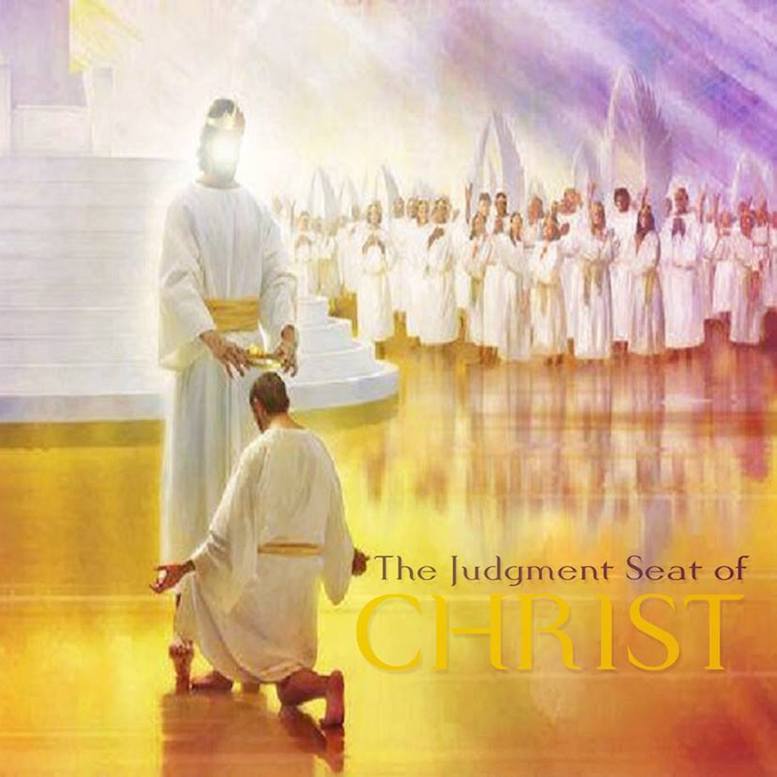

The criteria of judgment are most specifically defined in 2 Cor 5:10, where Paul states that “we must all appear before the judgment seat of Christ, that each one may receive the things done in the body, according to what he has done, whether good or bad.” The verse affirms that the purpose of the bēma seat is that the real heart of each believer might be revealed (the verb “appear” means “to be made manifest, laid open for all to see”). And by reason of who He chose to become when He emptied Himself, became obedient to the point of death (Phil 2:7-8), and thus “learned obedience by the things which He suffered” (Heb 5:8), He can judge with perfect sympathy. By reason of who He was from eternity, He can judge with perfect authority. Indeed, He alone is perfectly qualified to sit in judgment. The apostles acknowledged Him as “the righteous Judge” (2 Tim 4:8), “ordained of God to be the Judge of the living and the dead” (Acts 10:42), who will do so “without respect of persons” (1 Pet 1:17 cf. The Lord Jesus asserted that the Father had committed all judgment to Him (John 5:22). On the other hand, the issue at the judgment seat of Christ is the awarding or withholding of “rewards” (Matt 5:12 6:4 10:41 16:27 1 Cor 3:14 2 John 1:8 Rev 11:18 22:12) in this regard, there will be those who will “suffer loss,” who will be saved “as by fire” (1 Cor 3:15, suggesting narrow escape from the flames), and who will be “ashamed at his coming” (1 John 2:28). With reference to eternal salvation, Jude asserts that God is able to present us “ faultless before the throne of His glory with exceeding joy” (Jude 24). But salvation is not related to any works done by the individual (Eph 2:8,9 Titus 3:5) it is a matter of personal faith in the finished work of Jesus Christ, and it results in a standing of perfect righteousness before a thrice holy God (Rom 4:4,5). Thus, the issue at the judgment seat of Christ is not the eternal destiny of those being “judged.” The individual’s “works” are the basis of judgment there (1 Cor 3:12-15 Rev 2:23). That seat could be a judicial bench (Acts 18.12), but Paul employs the term in its more prominent social sense referring to a prominent elevation from which honor of various sorts – political, athletic, civil – was awarded or withheld by a presiding official (2 Cor 5:10 Rom 14:10). In the Grecian games, the umpire or referee sat on a bēma seat, and from that seat he rewarded those contestants who had run so as to obtain the prize (1 Cor 9:24). In the world of the New Testament, the bēma was a raised platform, usually mounted by steps, used to make public pronouncements and to award prizes. This is made manifest in the allusion to the bēma seat. The New Testament is explicit that the “judgment ( bēma) seat of Christ” is exclusively for believers. The reference is not to imputed righteousness, but to those elements of the believer’s life and service which have been tried in the fire and found acceptable, and with which the bride adorns herself in the triumphal march to the marriage banquet.) Thus, the judgment seat occurs in the heavenlies during the interim between the rapture of the saints (1 Thes 4:13-18) and the descent of the Lord Jesus in glory (Rev 19:11-21). (In the phrase “ righteousness of the saints”, the noun is plural, indicating that the reference is to “the righteous acts of the saints”. More specifically, Rev 19:8 indicates that when the Lord Jesus descends in glory at the close of the Tribulation period, the bride has already been rewarded. Christ will judge the living and the dead “at his appearing” (2 Tim 4:1 cf. The following is offered as a summary of those clearly established elements of the doctrine.

Much of what the Bible has to say about that day of judgment is clear and unambiguous. It behooves the believer to contemplate carefully all that God’s Word has to say about that day. Indeed, Daniel Webster is remembered as stating, “The greatest thought that has ever entered my mind is that I will have to stand before a holy God and give an account of my life.” The reality of that day of accounting is often appealed to in the Scriptures, both as an incentive to godliness and growth and as a warning against carelessness and spiritual sloth. There could hardly be a more sobering reality. The New Testament is explicit that a day is coming when believers “must all appear before the judgment seat of Christ” (2 Cor 5:10). Center for Research of Biblical Manuscripts & Inscriptions.



 0 kommentar(er)
0 kommentar(er)
